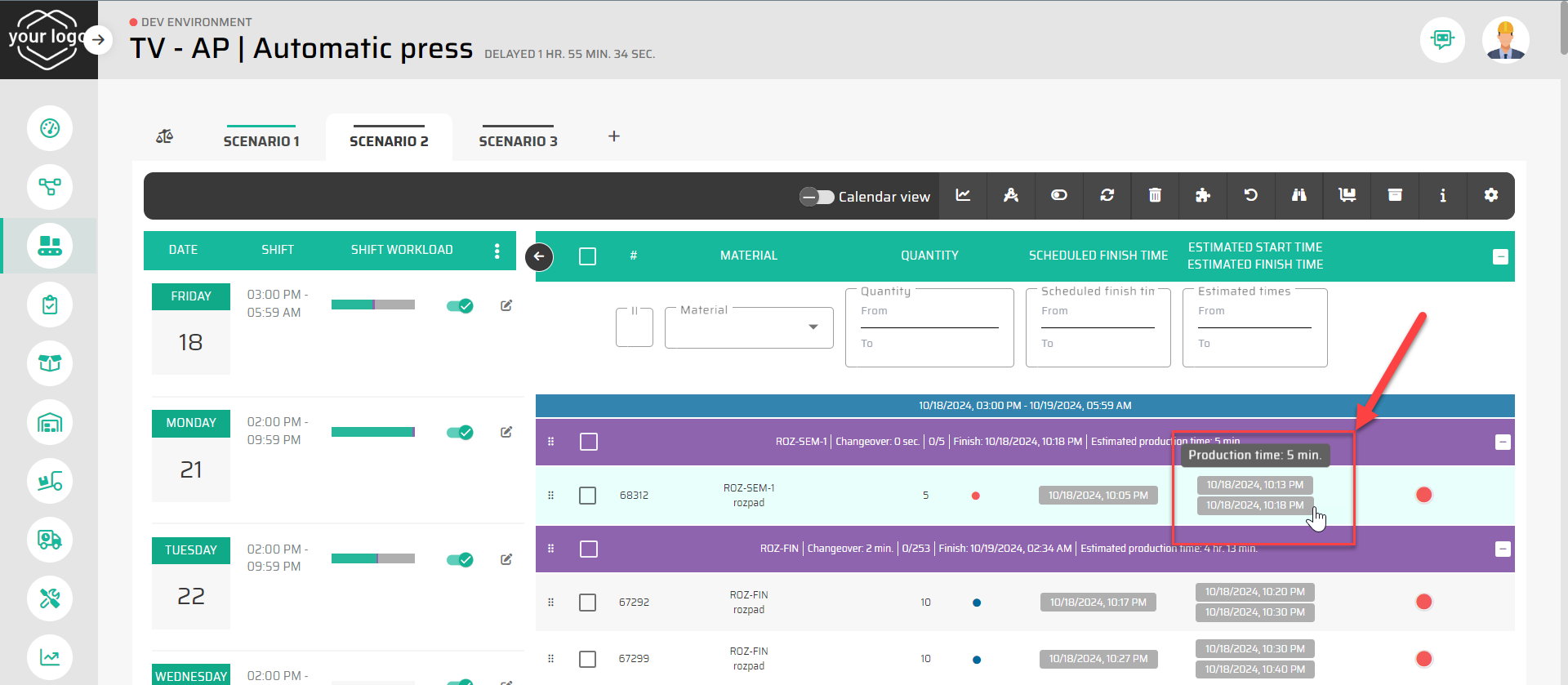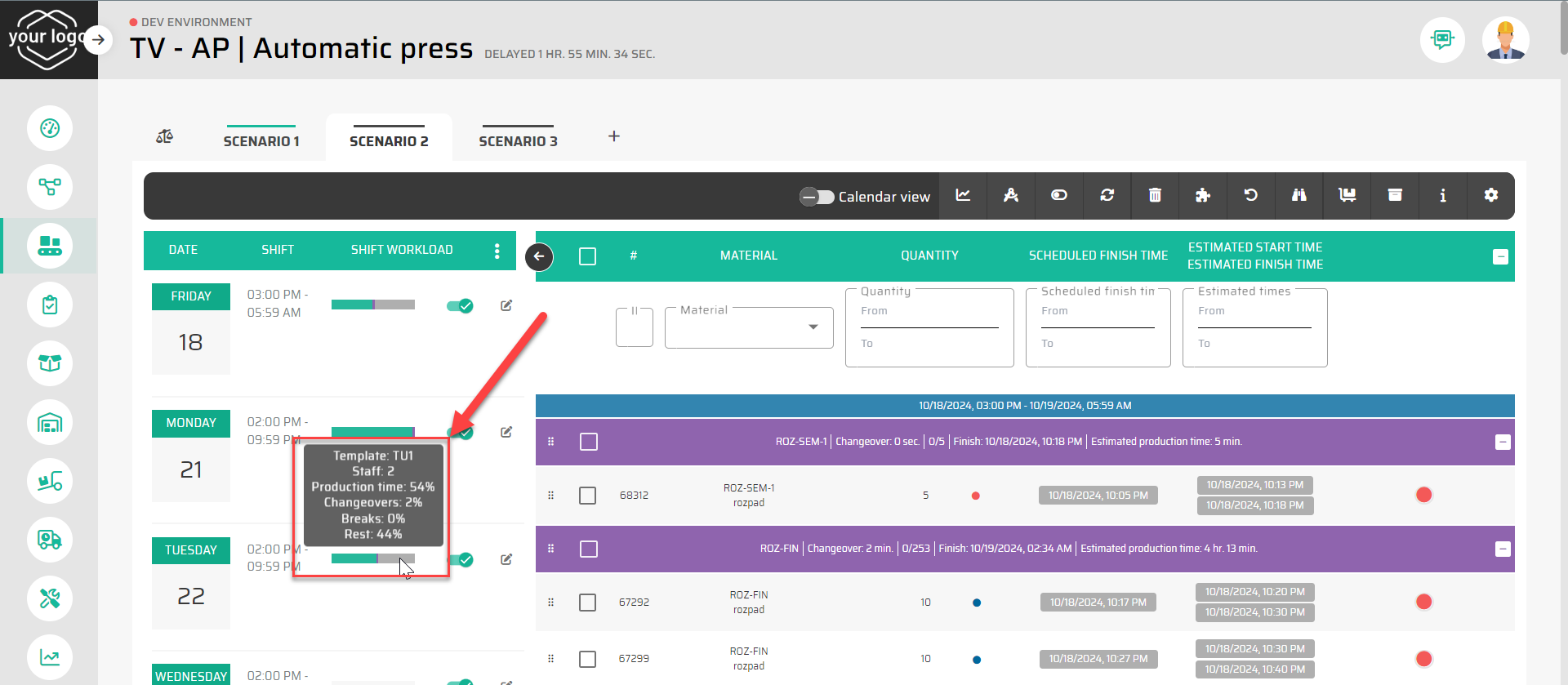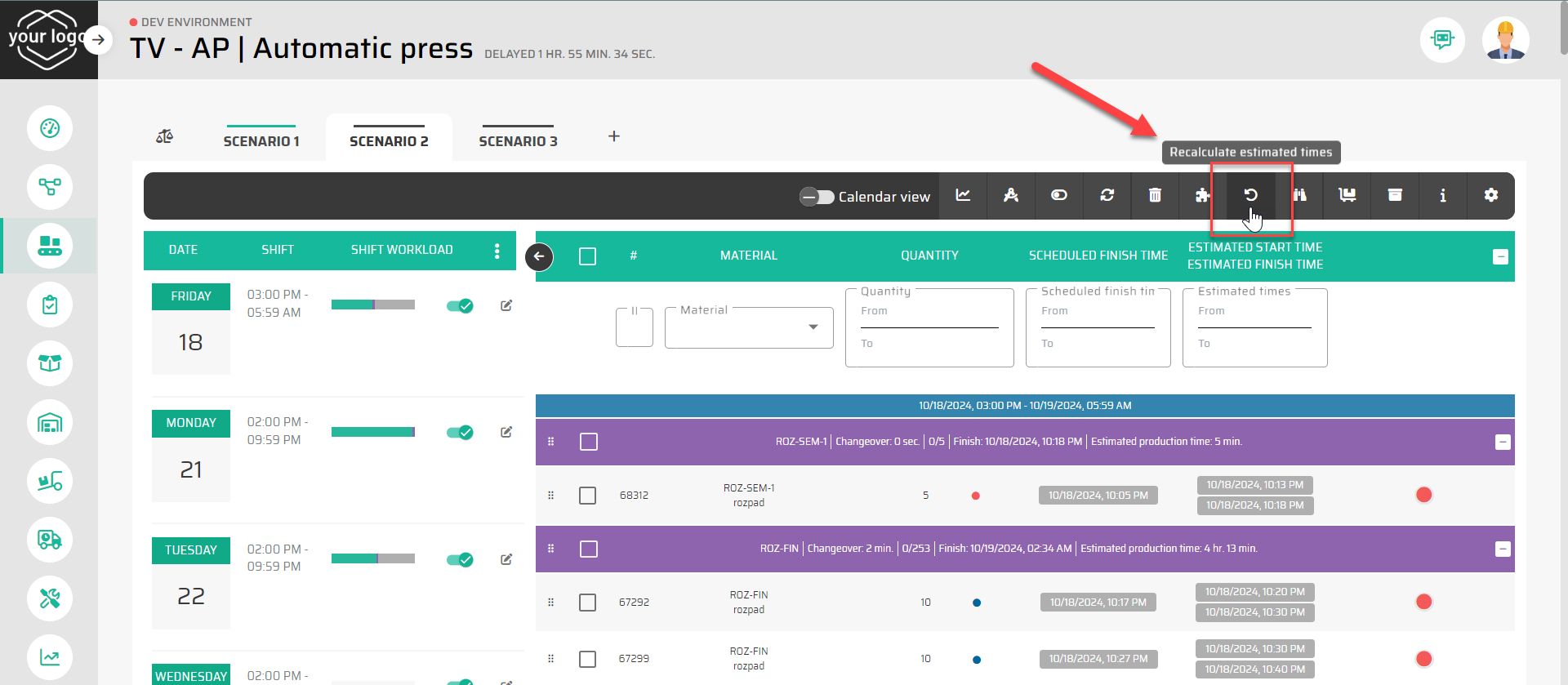Changes to Shifts and Operators
The ability to modify shifts and the number of operators on a production line is essential for maintaining flexibility in production planning. This feature allows planners to adapt to changing circumstances, such as unexpected demands, workforce availability, or operational challenges.
Key Features
Automatic Update of Estimated Times
When a planner adjusts the time of a shift or the number of operators scheduled for that shift, the system automatically updates the Estimated Start Time and Estimated Finish Time for all production items within the active production scenario. This ensures that all timelines accurately reflect the new operational parameters.

Impact of Shift Modifications
If a shift's duration is extended (e.g., increased by one hour), the system recalculates how many production items can be processed during this additional time. This enhancement allows for increased output and efficiency when needed.
Changes to the number of operators can directly affect production speed. An increase in operators typically results in reduced processing times for production items, as more hands can contribute to the manufacturing process.

Real-Time Adjustment
The system continuously monitors production progress, enabling planners to make real-time adjustments to shifts and operator allocations. This adaptability is crucial for responding to unforeseen circumstances or optimizing the production flow.
User-initiated Recalculation
In cases where automatic recalculation of estimated times does not occur after a shift or operator change, users have the option to manually trigger the recalculation process. This is done by clicking the "Recalculate Estimated Times" button in the upper toolbar of the production planning interface. This feature is particularly useful in scenarios where system performance may limit real-time updates.

By utilizing the changes to shifts and operators feature, production planners can maintain an agile and responsive manufacturing environment, ensuring that production goals are met efficiently and effectively.
